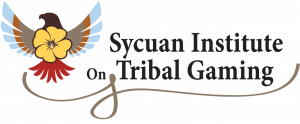
SDSU Certificate in Cultural Tourism & Tribal Enterprises
January 18 – March 13, 2022 (Level 1)
March 14 – May 8, 2022 (Level 2)
In partnership with San Diego State University (SDSU) and the L. Robert Payne School of Hospitality and Tourism Management, AIANTA is offering the online Certificate in Cultural Tourism and Tribal Enterprises (“CTTE”).
The for-credit certificate, taught by Eric S. Trevan, Ph.D. (Match-E-Be-Nash-She-Wish Band of Pottawatomi Indians, Gun Lake Tribe), brings together academic and industry experts who will provide tools to help Native tourism planners develop tribally-specific tourism strategies that sustain a balance between Native cultural environments, economic development, tourism promotion and recreational use.
Students will learn global best practices in the effective organization of Native cultural sites, recreation and tourism programs and leisure-related tribal businesses, including tribal gaming, Native hospitality operations and sacred sites.
Program Details
The CTTE Program consists of two levels (Level 1 and Level 2) with each level including eight weeks of instruction through SDSU Global Campus. The courses are designed to be progressive and participants will be eligible for 3 units of college credit for each level.
Level 1 Courses
January 18 – March 13, 2022
This course explores tribally specific strategies to sustain a balance between tribal cultural environments, economic development, tourism promotion and recreational use. Students will learn effective organization, administration and supervision of tribal cultural sites, recreation and tourism agencies and leisure-related tribal businesses, including tourism agencies, tribal gaming and hospitality operations and sacred sites. The course will also consider issues of social/cultural sustainability, social justice and equity. In addition, students will learn to balance social and economic sustainability, including coordination of tribal tourism development with tribal political, cultural and spiritual concerns.
more info ...
Week 1 (1/18/22)
Understanding Tourism with Community & Economies
- Institutions and governance
- Tourism impacts
- Intersection with community
- Cultural framework
- Community components
Week 2 (1/25/22)
Assess Cultural Tourism
- Asset-based community development
- Cultural assets
- Cultural themes
- Economic impacts of tourism
Week 3 (2/1/22)
Agritourism & Geotourism
- Food systems
- Respect for sacred land
- Meeting demand
- Foundations of food and land for tourism
Week 4 (2/8/22)
Placemaking, Culture & Storytelling
- Culture of place
- Understand your story
- Language and culture
Week 5 (2/15/22)
Historic Preservation
- What history to preserve
- Shared meanings
- Sacred sites
- NAGPRA
- Adaptive (re)uses
Week 6 (2/22/22)
Tours, Trade and Interpretation
- Preservation of language
- Balance of visitors and preservations
- Logistics
- Travel trade
- Native art
Week 7 (3/1/22)
Project Management, Administration and Operations of Tourism-Related Activities
- Activate a tourism strategy
- Balance projects and objectives
- Compare tourism activities
- Vision, mission and goals
Week (8 3/8/22)
Partners and Advisors: Connecting Community
- Tourism
- Partners and inter-tribal cooperation
- Regional approaches
- Social capital, networks and relationships
- Cultural tourism politics
Level 2 Courses
March 14 – May 8, 2022
This course explores strategies for marketing, financing and assessment specifically related to cultural heritage tourism. Through interaction with guest speakers and case studies, students will learn effective services development, including pricing, promotion, distribution, budget development, revenue generation, assets management and controls. The course will also examine the evaluation and research process as they relate to tribal cultural heritage tourism service development and delivery across multiple tourism segments. In addition, students will have access to management tools for sustainable development and cultural preservation and perpetuation.
more info ...
Week 1 (3/14/22)
Native Institutions and Organizations Focused on Tourism
- Institutional strategy
- Active organizations (Tribal, State, Federal, International)
- Policy objectives
- Institutional strategy
- Itineraries vs. packaging
Week 2 (3/21/22)
Marketing
- Distribution of product
- Planning
- Activate and amplify
- 4 P’s
- Target audience
Week 3 (3/28/22)
Budget and Fundraising
- Revenue and expenses
- Financials
- Strategic fundraising
- Aligning financials with goals
Week 4 (4/4/22)
Labor, Leisure, Quality of Life and Happiness of Place
- Balance and leverage of labor and leisure
- Quality of life and happiness
- Building relationships with people and place
Week 5 (4/11/22)
Tourism and Technology (Tools to Support Tourism)
- Current technologies
- Balance tourism, tribal economies and balance
- Integration of technology into tourism planning, implementation and evaluation
- Entrepreneurship and innovation
Week 6 (4/18/22)
Integration with Gaming and Tribal Enterprises
- Tourism impacts from gaming
- Integration strategies with gaming activities
- Institutional alignment between tourism, culture and gaming
Week 7 (4/25/22)
Regional Economic and Community Networks
- Impacts of tourism
- Models of regional success
- Aligning regional goals between stakeholders
- Understanding economic and community decisions with regional interests
Week 8 (5/2/22)
Planning, Assessment and Measuring Success
- Forecasting success (short and long term)
- Data collection (qualitative and quantitative)
- Survey development and implementation
- Events
- Evaluation of tourism outcomes
- Economic outcomes
- Quality of life outcomes
- Political/policy success
- Organizational success
About The L. Robert Payne School of Hospitality & Tourism Management
The L. Robert Payne School of Hospitality & Tourism Management at SDSU is committed to serving students through academic rigor, practical job experience, and leadership training through real world context customized for each student. The School also hosts the Sycuan Institute on Tribal Gaming, the only Institute dedicated to offering a Bachelor of Science degree with an emphasis on tribal casino operations management.
About SDSU Global Campus
SDSU Global Campus offers a wide variety of lifelong learning classes, seminars, and certificate programs. Career advancement courses are offered in many areas of management, leadership, and quality improvement while self-enrichment courses range from accounting to web design. Additionally, the SDSU Global Campus offers more than 50 certificate programs, online courses, English language programs, and many other learning opportunities locally, regionally, and around the world.

